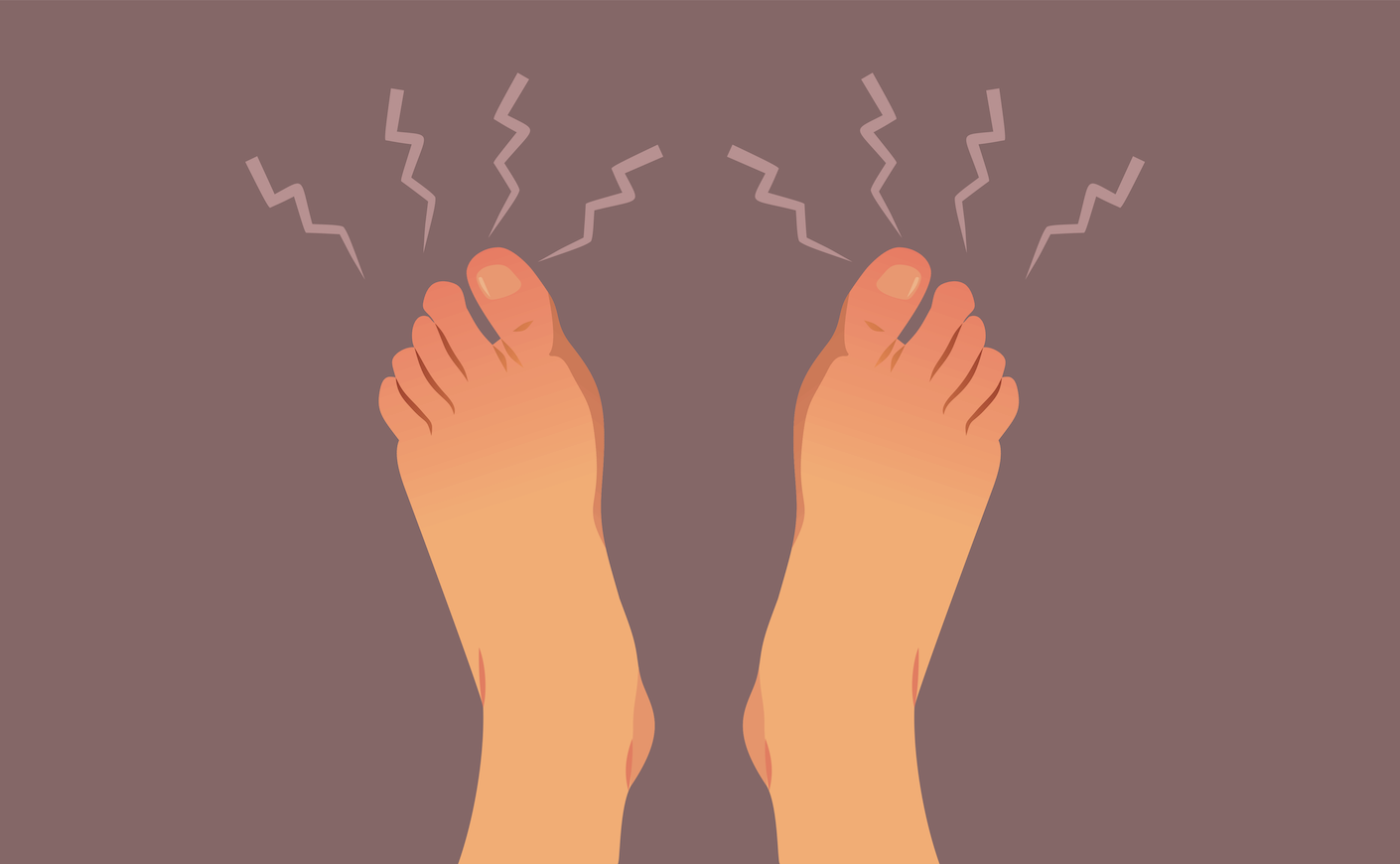Have you ever felt that uncomfortable pins-and-needles feeling in your feet, or even lost sensation in them altogether? Unless you’d been sitting for an hour with your legs in a weird position, you might be struggling with neuropathy, a condition that occurs when the nerves in your feet get damaged, causing symptoms that range from tingling and numbness to sharp, burning pain.
Neuropathy is uncomfortable, and it’s also inconvenient: Decreased sensitivity in your feet can make everyday tasks like walking or driving difficult. But what causes neuropathy to take hold in the first place, and what can you do about it? The good news is that neuropathy can be managed, especially if you seek help early.
What causes neuropathy?
Neuropathy, sometimes called peripheral neuropathy, is a catch-all term to describe nerve damage that impacts anything other than your brain or spinal cord. There are two parts of the nervous system — the central nervous system, which controls your brain and spinal cord, and your peripheral nervous system, which branches out from the central nervous system to control everything else, from the wiggling of your eyebrows to the tapping of your toes.
The basic science is this: Neurons send and relay signals from the central nervous system out to different parts of your body, in order to tell it to do something. Say you touch a hot stove: The skin on your hand has tiny sensors that detect the heat, and these sensors turn the heat into electrical signals. The signals travel through the nerves in your body like a fast-moving highway until they reach the brain, which then sends a signal back to your hand, telling you to pull it away from the stove. The process is so efficient, it happens almost instantly.
Now, if there’s any damage to the nerves in the chain, the signals to and from your brain can get interrupted or distorted, which causes neuropathy. Because your feet are the furthest extremities from your central nervous system, it’s the most common area you’re likely to experience it. Neuropathy causes weakness, numbness, or pain in the area where there’s nerve damage, and might feel like a stabbing, burning, or tingling sensation. It’s a pretty common condition, and impacts over 30 million people in the United States alone, with incidences nearly doubling among adults 45 and older.
There are a few reasons people might develop neuropathy, including nerve damage from traumatic injuries, infections, metabolic problems, or even exposure to toxins. But usually it’s a side effect of another health condition, like lupus, lime disease, rheumatoid arthritis, and most commonly, diabetes.
What are the symptoms of neuropathy?
Symptoms will differ depending on the type of nerve that’s been damaged: Sensory nerves help your skin determine temperature, pain, vibration or touch, motor nerves control muscle movement, and autonomic nerves control automatic bodily functions like blood pressure, sweating, and digestion. That’s why some people might feel numbness, and others feel extreme sensitivity or muscle weakness.
When neuropathy happens in the feet, it can have a major impact on balance. When you’re not aware of where your feet are, or can’t feel what’s under them, it’s much more difficult to move around with confidence. That’s why many people with foot neuropathy notice a change in their gait, or end up shuffling when they walk.
What happens if neuropathy is left untreated?
While a bit of tingling or discomfort might not seem like a big deal, if foot neuropathy goes untreated, it can have severe consequences over time. As damage worsens, you might lose the ability to feel cuts or blisters when they form, which could lead to infection. The muscles of your feet could begin to atrophy, making it difficult to walk or move your feet properly. And of course, issues with balance significantly increase your chances of taking a potentially life-threatening fall.
What are the best treatments for foot neuropathy?
In severe cases, surgery may be required to help reconnect damaged neural pathways. But before you consider going under the knife, there are some easier ways to deal with the damage.
If your neuropathy is caused by diabetes, a healthy diet and lifestyle can work wonders. Keeping blood sugar in check, eating well-balanced meals, and exercising regularly can significantly slow progression and ease symptoms.
In some cases, your doctor may recommend medication designed to treat peripheral nervous system issues. There are prescription injections, pills, or patches to help manage chronic nerve-related pain, although they won’t cure the condition.
One solution that won’t require a trip to the doctor is to get a personally fitted arch support system from The Good Feet Store. Their 3-step arch support system puts your feet into their ideal foot position and is clinically proven to *significantly reduce pain. “We have helped millions of people live the life they love without the pain or discomfort that comes from many of the activities of daily life, including walking and standing” said Amber R, a Good Feet arch support specialist.
One of the scariest effects of neuropathy, especially among older adults, is that it can lead you to lose some of your independence. That’s why you should take the first signs of neuropathy as an alarm bell signaling you to take action, so you can confidently walk — not shuffle — into the next great chapter of your life.
*“A test of efficacy and foot position alteration in patients wearing Good Feet arch supports for the treatment of pain”; Massachusetts General Hospital Institutional Review Board # 2022P000291. In an uncontrolled clinical study, at Day 30, most patients with plantar fasciitis reported a 50% decrease in pain.









